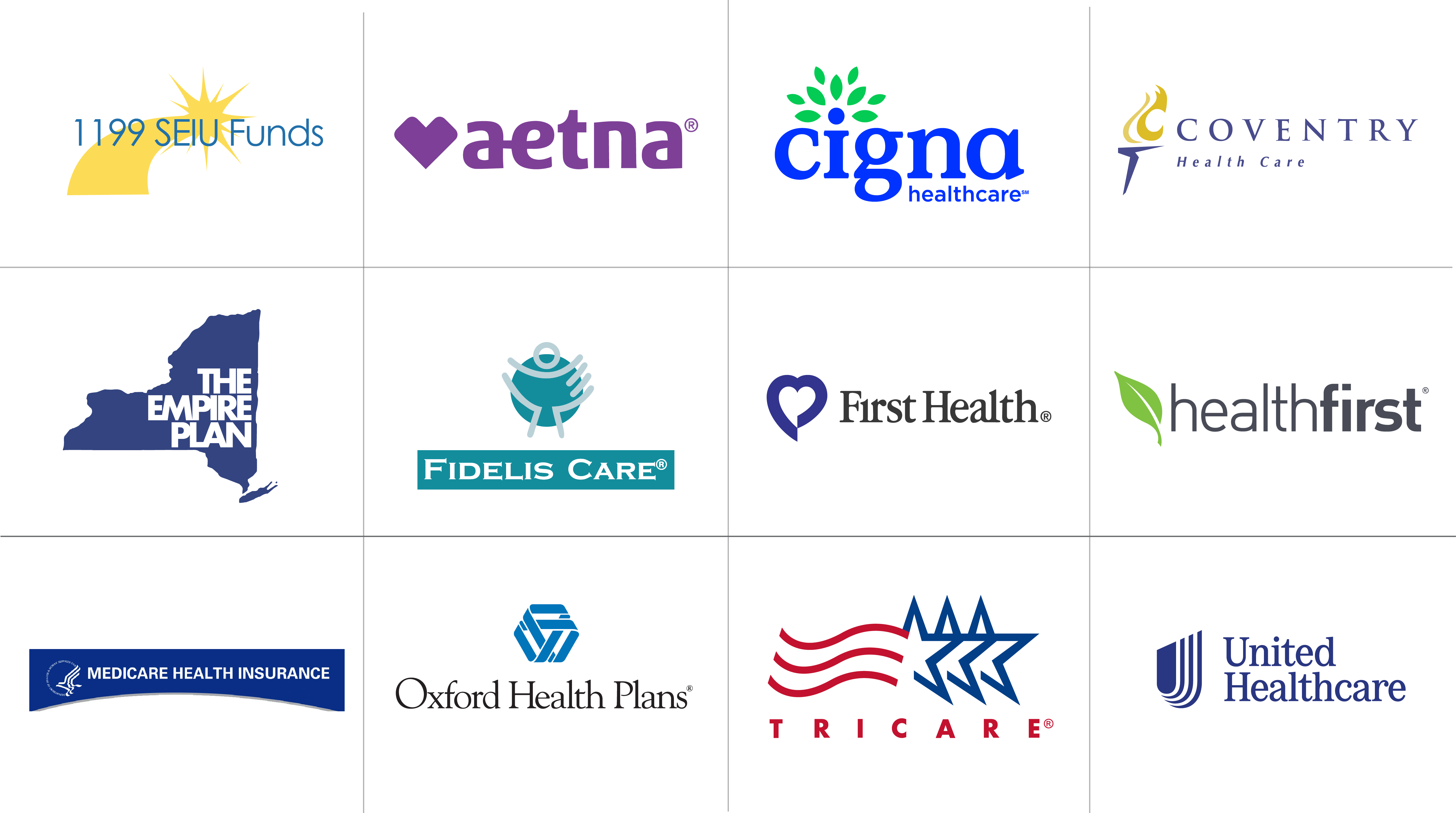Reveal Your Best Skin With Acne Treatment In Queens
Personalized Care for Teens and Adults in Forest Hills

Acne
Acne usually flares up during puberty, affecting more than 85% of teenagers. However, this persistent and embarrassing skin condition can continue into adulthood. The experienced Adult and Pediatric Dermatology team in the Forest Hills neighborhood of Queens, New York, can eliminate acne. They offer effective treatments that range from topical medications to advanced lasers. Treatments target the source of your acne. If you or your teenagers have ongoing acne, schedule an appointment today. Call the office or use the online booking feature.
What Causes Acne?
Hair follicles contain oil-producing glands. Usually, the oil drains out of the follicle and onto your skin. When dead skin cells block the opening, the oil becomes trapped, and acne develops.
Acne most often appears when oil production increases, a problem that commonly begins during the hormonal changes brought on by puberty and women’s menstrual cycles. When the bacteria that normally live on your skin get trapped with the oil, you end up with red, inflamed acne.
In addition to hormonal changes, some medications cause acne, and you may have an inherited tendency to develop it. Though researchers are still exploring the role that diet plays in acne, recent studies indicate that milk, sugary drinks and foods, and high-fat foods can increase the incidence of acne in adults.
Start Your Transformation
Schedule your consultation today and discover how our expert team can help you achieve your aesthetic and skin health goals.
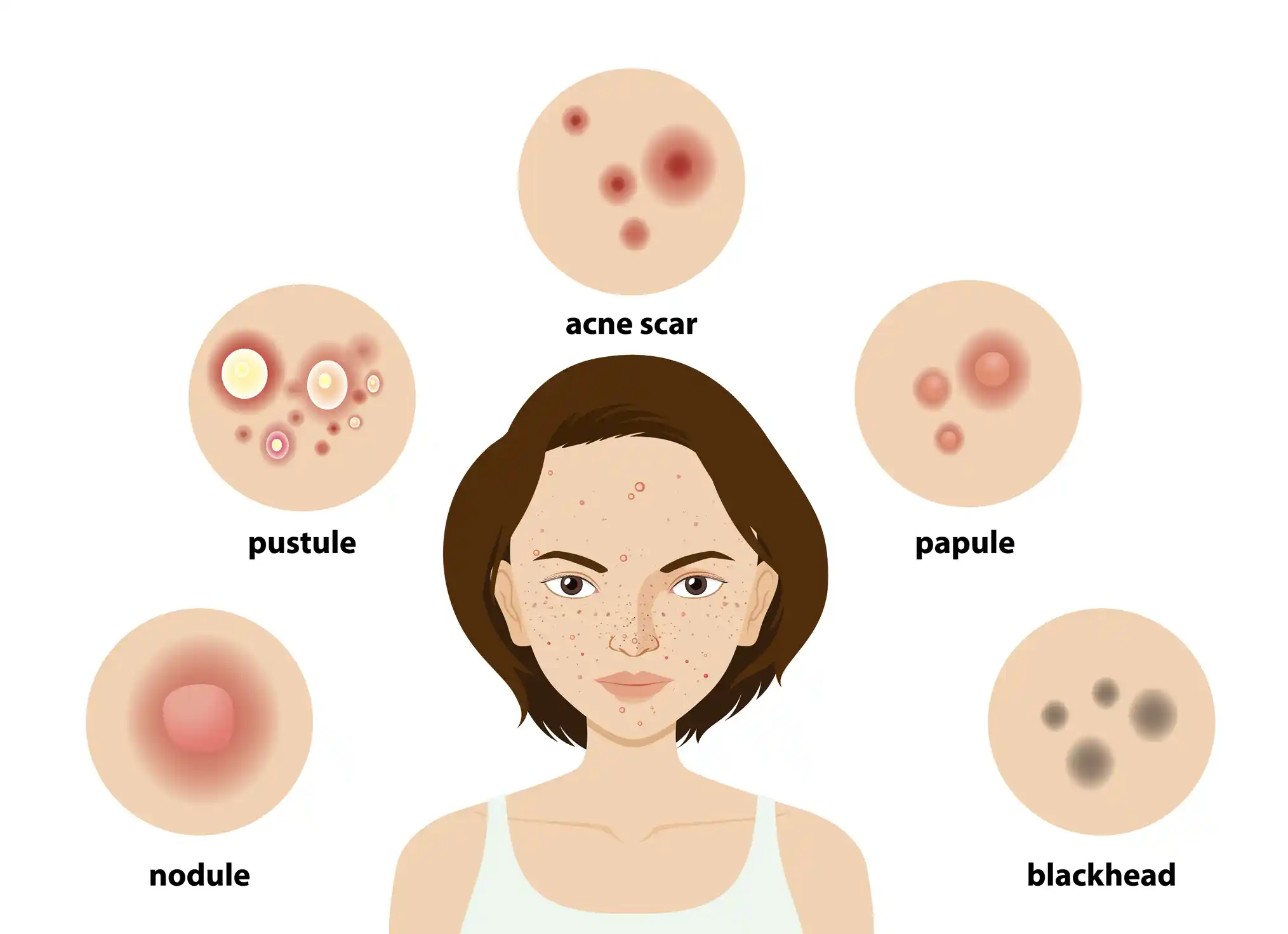
What Kinds of Acne
Are There?
What Kinds of acne
Are There?
Acne includes several kinds of skin lesions:
- Comedones (Blackheads and Whiteheads)
- Papules (Small, Red Pimples)
- Pustules (Small, Pus-Filled Pimples)
- Nodules (Large, Painful Pimples)
Papules, pustules, and nodules are caused by inflammation. After these lesions heal, the underlying skin can appear darker.
Read Our Reviews
Posted on
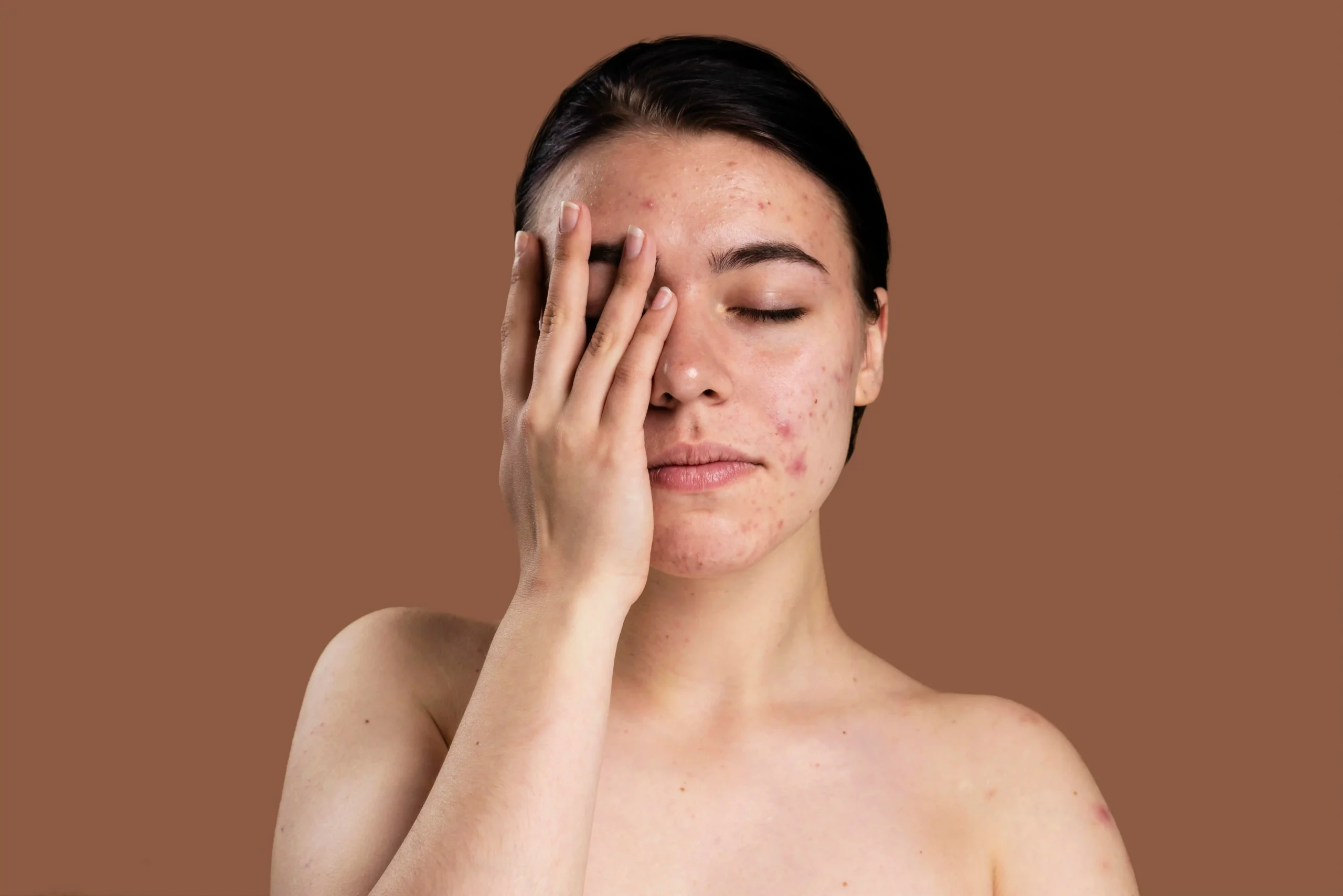
What Causes Acne Scarring?
When the inflammation that comes with acne penetrates below the surface, it damages the surrounding tissues. After your acne goes away, your body heals the damaged area by producing collagen. The new collagen has a different appearance from the surrounding skin, creating an acne scar.
You have a higher risk of developing a scar when:
- You have inflammatory acne.
- Your inflamed acne isn’t treated.
- You pick, squeeze, or pop your acne (causing inflammation).
- You have a relative who had acne scarring.
Getting early treatment gives you the best chance of preventing acne scarring. When inflammation develops, you must seek help from the Adult and Pediatric Dermatology team.
How is Acne Treated?
How is Acne Treated?
Our dermatology team in Queens employs a mix of safe, proven therapies to unclog pores, kill acne bacteria, and calm inflammation. Depending on your skin, we may use:
- Topical Medications. Prescription creams or gels containing retinoids or antibiotics. These reduce oil production and bacteria.
- Oral Medications. For moderate to severe acne, antibiotics or hormonal pills (for women) can clear skin from the inside out. Isotretinoin (Accutane) is also an option in some cases, with careful monitoring.
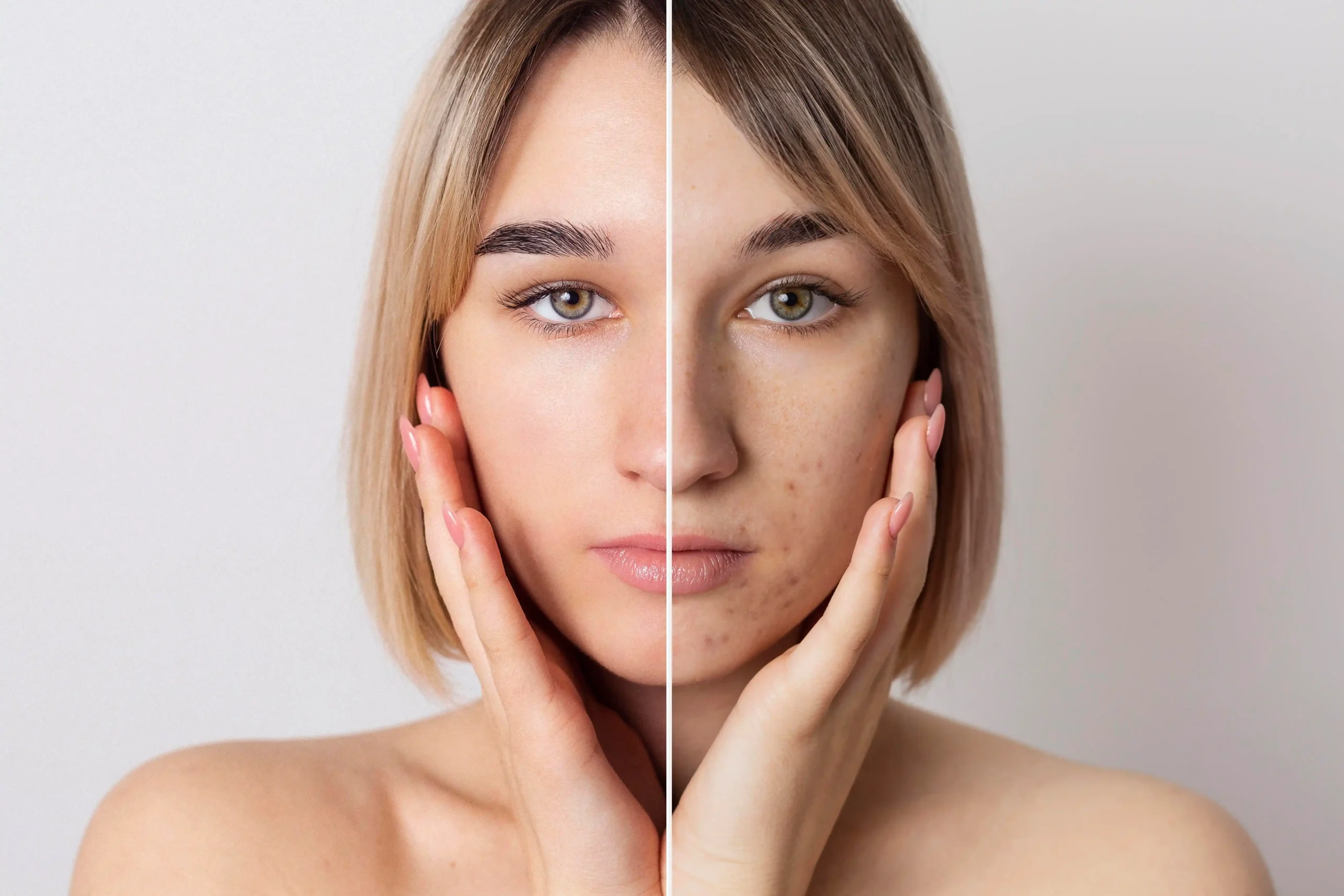
- Laser & Light Therapy. Advanced in-office treatments (e.g., blue-light, photodynamic therapy) to destroy acne-causing bacteria and shrink glands. These procedures speed healing with little downtime.
- Chemical Peels & Facials. Medical-grade acne facials or chemical peels can clear current breakouts and help prevent future ones. Extractions, salicylic acid peels, or glycolic treatments reduce the appearance of breakouts and break the cycle of new ones.
- Acne Scar Management. Many acne treatments double as scar therapies. We offer micro-needling, subcision, and light laser treatments to smooth post-acne scars and rejuvenate skin.
Throughout treatment, our team educates you on gentle skincare and lifestyle tips. We use non-comedogenic cleansers and moisturizers to keep skin balanced, and we advise on diet and habits that help keep pores clear. You’ll also learn the importance of not picking at acne, which reduces scarring risk.
Our Acne Gallery: Before and After
Our Acne Gallery:
Before and After
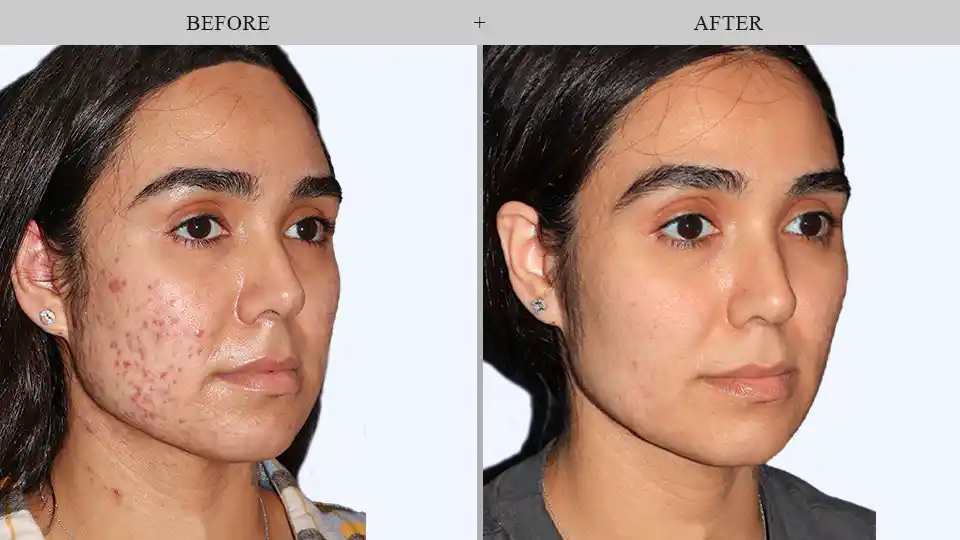
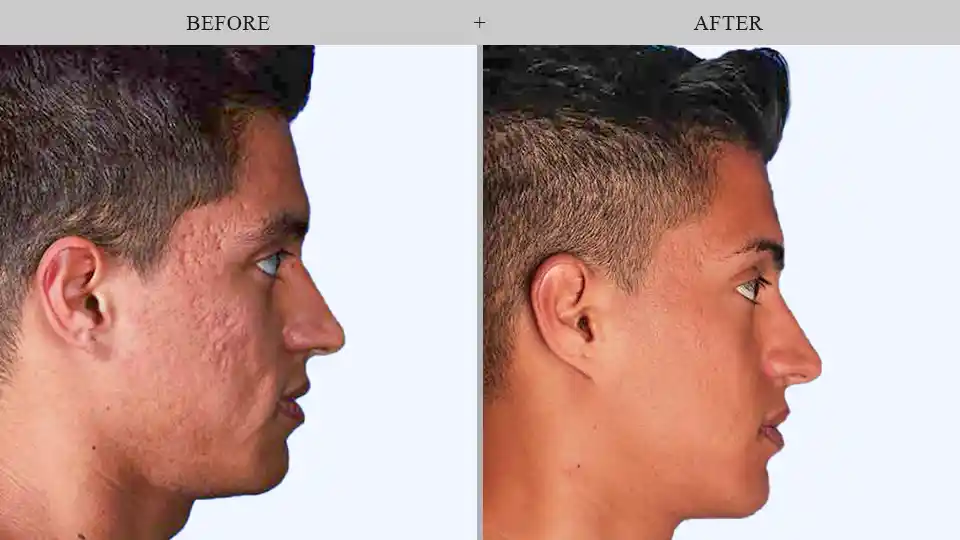
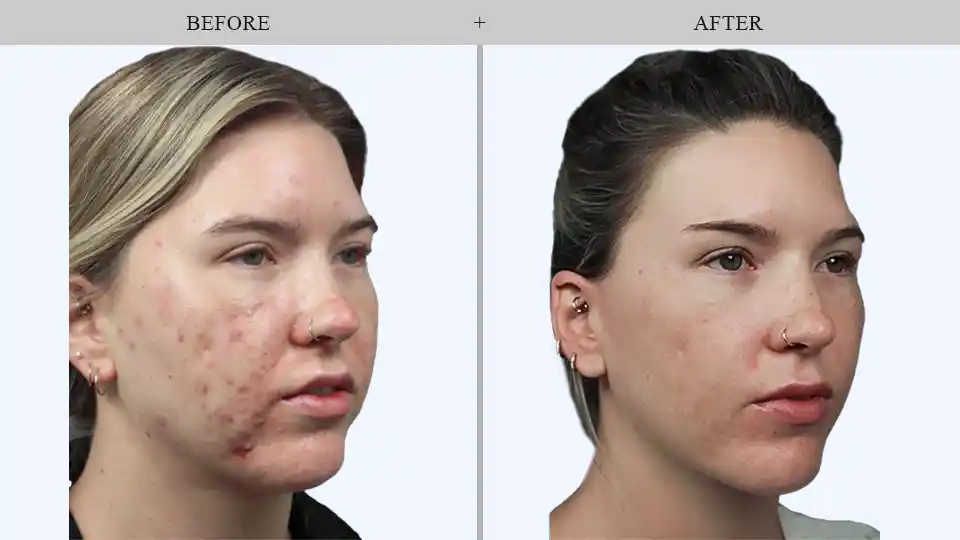
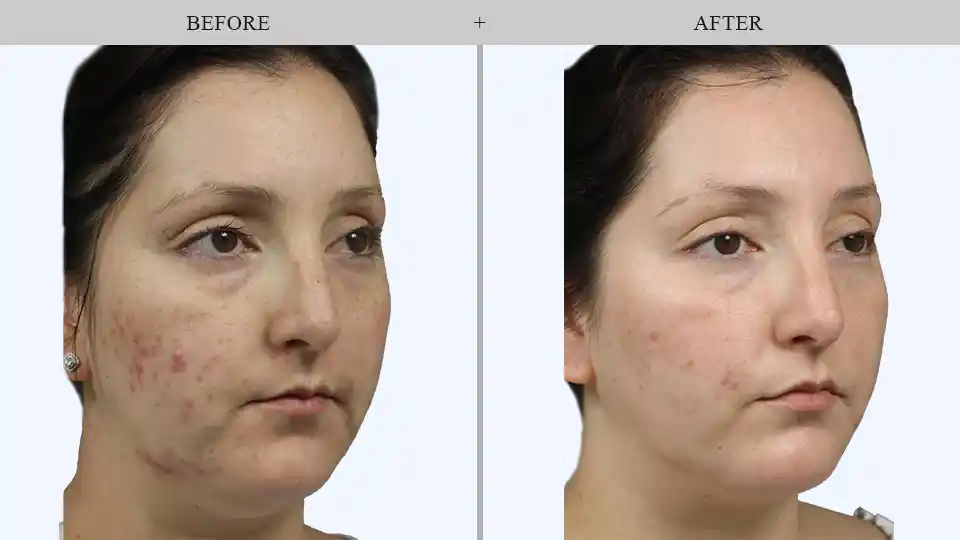
Most Major
Insurances Accepted
Most Major Insurances Accepted
Please call our office if you do not see your insurance plan listed below. If your insurance plan requires you to obtain a referral from your primary care doctor, please obtain one prior to your visit, or call our office to ask if a referral or authorization is needed for your insurance. Ifa referral is not available at the time of the visit, your appointment will be rescheduled.
Choose Your Provider
Meet our team of board-certified specialists dedicated to your skin health and beauty

Michael Paltiel,MD
Dermatology
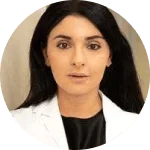
Zina Goldvekht, PA-C
Physician Assistant

Aleksey Babakhanov, FNP
Family Nurse Practitioner

John Perrotti, MD
Plastic Surgery

Irma Meni
Cosmetologist
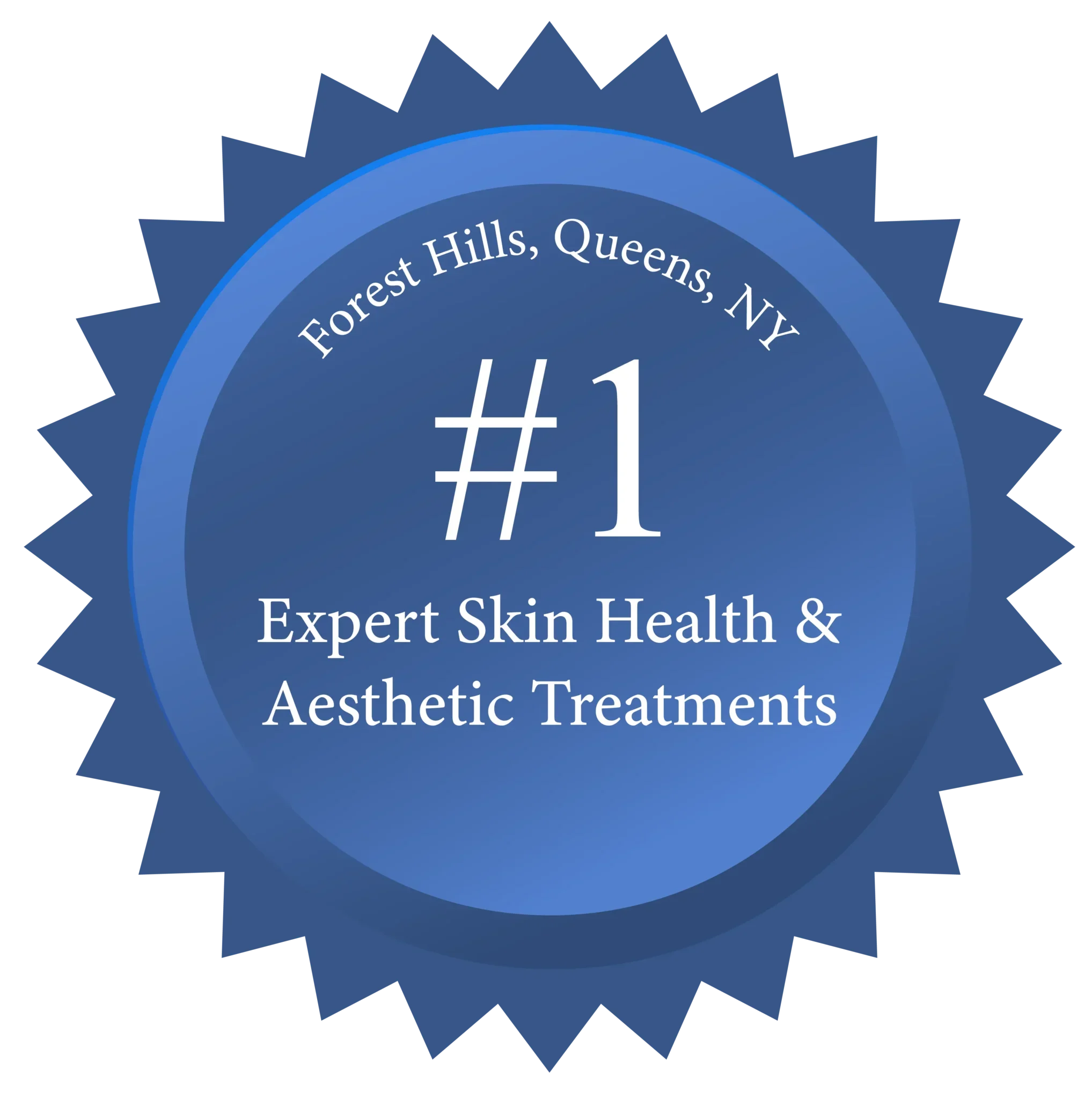
Why Choose Us in
Forest Hills
As a locally owned Queens dermatology clinic, we combine medical expertise with a warm, personal approach. Our board-certified dermatologists and nurse practitioners have treated thousands of acne patients, young and old. We stay up-to-date with the latest acne research and technology, so you benefit from both tried-and-true remedies and modern therapies (like FDA-approved AviClear laser). We pride ourselves on short wait times, clear communication, and gentle care. Many patients note how quickly their acne clears under our guidance.
If you’re searching for “acne Queens” or “acne near me,” call our Forest Hills office today at (718) 896-3376 or use our online booking. We accept most major insurance plans, and our friendly staff will help you with everything from paperwork to payment plans. Adult and Pediatric Dermatology is your partner in achieving clear, confident skin.
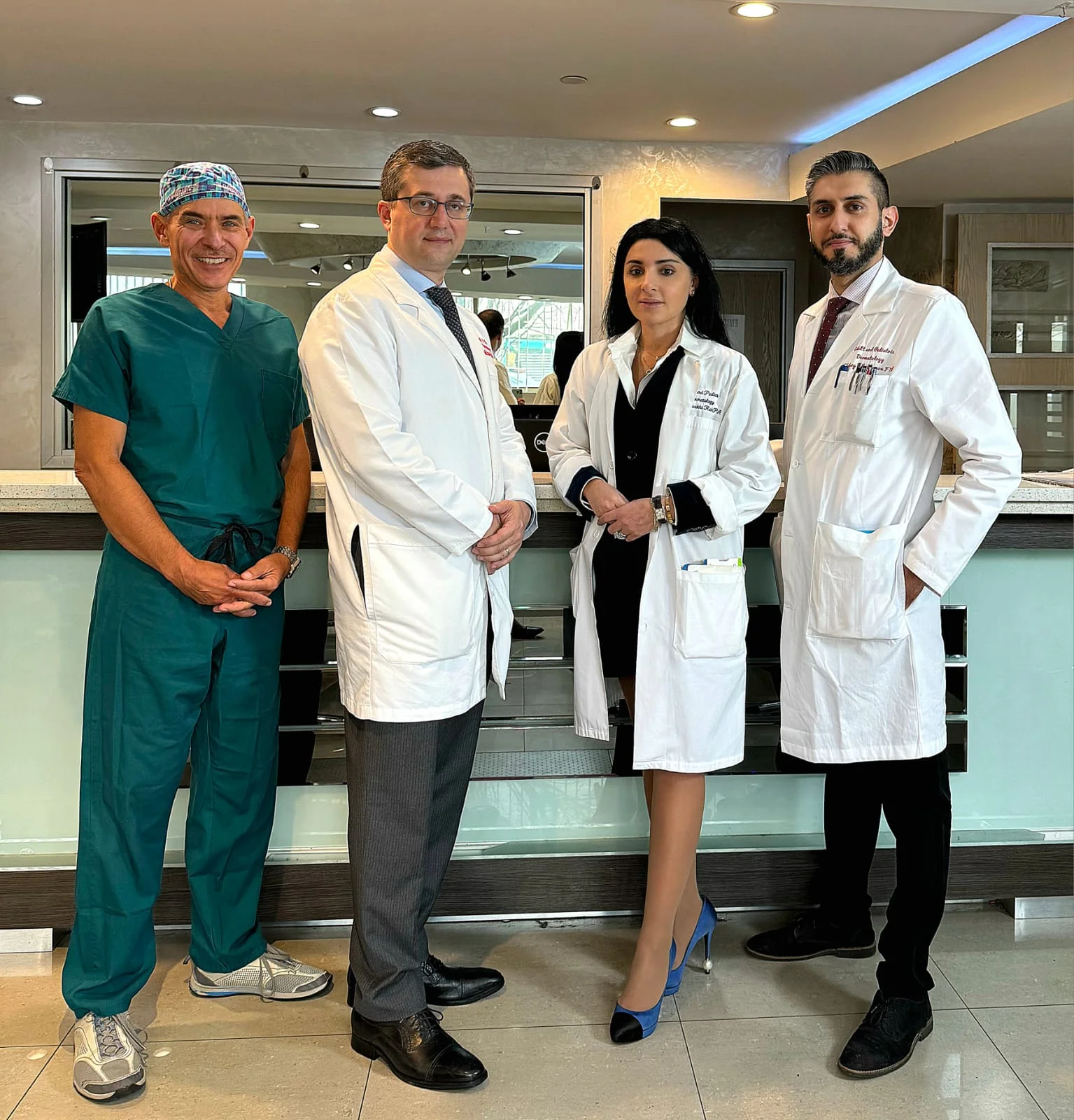
Frequently Asked Questions
Hormone changes (puberty, menstrual cycle), genetics, certain medications, and diet can all trigger acne by increasing oil production. When oil gets trapped under the skin, bacteria multiply and cause redness and pimples.
Many patients notice improvement within a few weeks of starting treatment. We often adjust therapy as needed. Laser and light treatments typically require a series of sessions, 2–4 weeks apart. Acne and scars improve gradually as inflammation decreases.
Most treatments are well tolerated. Topical medications have no downtime; patients may experience mild dryness or peeling. Laser/light therapies can cause a warm sensation on the skin, but discomfort is minimal. We can use numbing or cooling techniques for comfort.
The best way to avoid scars is early treatment. Allowing acne to heal untouched (don’t pick or pop) and following a dermatologist’s plan can prevent most scars. If scars do occur, we have treatments to improve their appearance.

